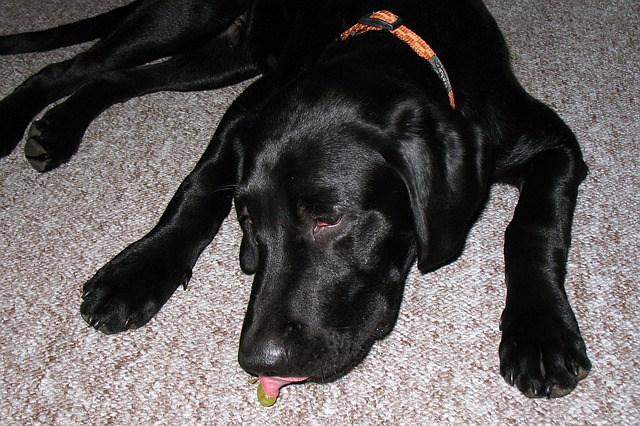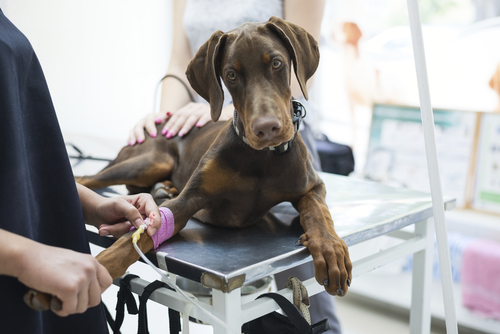
As a responsible pet parent, you probably already know to never let your dogs eat grapes. But do you know why? Grape toxicity is one of the most mysterious and difficult illnesses dogs can face.
Grapes may seem like a harmless fruit, but they have the potential to cause sudden, life-threatening kidney failure in some dogs.
Causes of Grape Toxicity
Dogs of any age, size, breed or sex can suffer a toxic reaction to grapes or raisins. Scientists are yet to definitively identify the poisonous substance, but they believe it is associated with the flesh of the fruit. This means that even peeled and seedless grapes can be poisonous.
What Happens When Dogs Eat Grapes?
Strangely, when some dogs eat grapes they suffer no ill effects. But for others, ingesting even a small amount of grapes or raisins leads to severe kidney damage. As the kidneys begin to shut down, affected dogs often have low urine output (oliguria), and eventually become unable to produce urine at all (anuria).
When a dog is unable to urinate, waste, fluids, and electrolytes build up in the body. Without prompt treatment, these dogs can suffer permanent kidney damage or even pass away.

Signs & Symptoms of Grape Poisoning
- Vomiting and/or diarrhea
- Loss of appetite
- Lethargy, weakness
- Abdominal pain
- Dehydration
- Difficulty urinating or passing only a small amount of urine
- Inability to pass any urine at all
- Foul breath
- Ulcers in the mouth
- Tremors
- Seizures
- Coma
Treatment
If your dog eats grapes, it should be treated as an emergency. Contact your vet immediately. He or she may recommend inducing vomiting if you know for sure that the grapes or raisins were ingested within the last two hours. During this time frame it is still possible that the toxins have not been completely absorbed.
PetMD provides step-by-step instructions for making your dog vomit using Hydrogen Peroxide.
If you are unsure when your dog ate the fruit, head to the vet immediately. They may induce vomiting and/or give activated charcoal to prevent further absorption of the toxin. Your veterinarian will also provide supportive care to prevent and treat any kidney damage. Treatment will include intravenous fluid therapy and medications to maintain kidney function.
Routine laboratory tests such as a complete blood count, biochemistry profile, and urinalysis will help the veterinary staff determine the extent of kidney damage. Unfortunately for some dogs, the damage is so severe they can no longer produce urine. At this point, extreme measures like hemodialysis or kidney transplant may be necessary to save their lives. However, most dogs that suffer this level of damage are euthanized to end their suffering.
Prevention of Grape & Raisin Poisoning
Preventing acute kidney failure due to grape toxicity is simple: never let your dogs eat grapes! Keep any foods containing grapes or raisins well out of reach of your pups. Also, make sure every member of your household understands the risks and acts accordingly. Dogs can ingest dangerous substances in the blink of an eye, so be sure to secure your trash bins and keep your pets on-leash when walking in unfamiliar areas. Don’t let a discarded box or raisins in the park put your best friend’s life at risk.
H/T to PetMD
The post Why You Should Never Let Your Dogs Eat Grapes appeared first on iHeartDogs.com.
from iHeartDogs.com https://ift.tt/2Bp7XYj https://ift.tt/2SWlopV



No comments:
Post a Comment